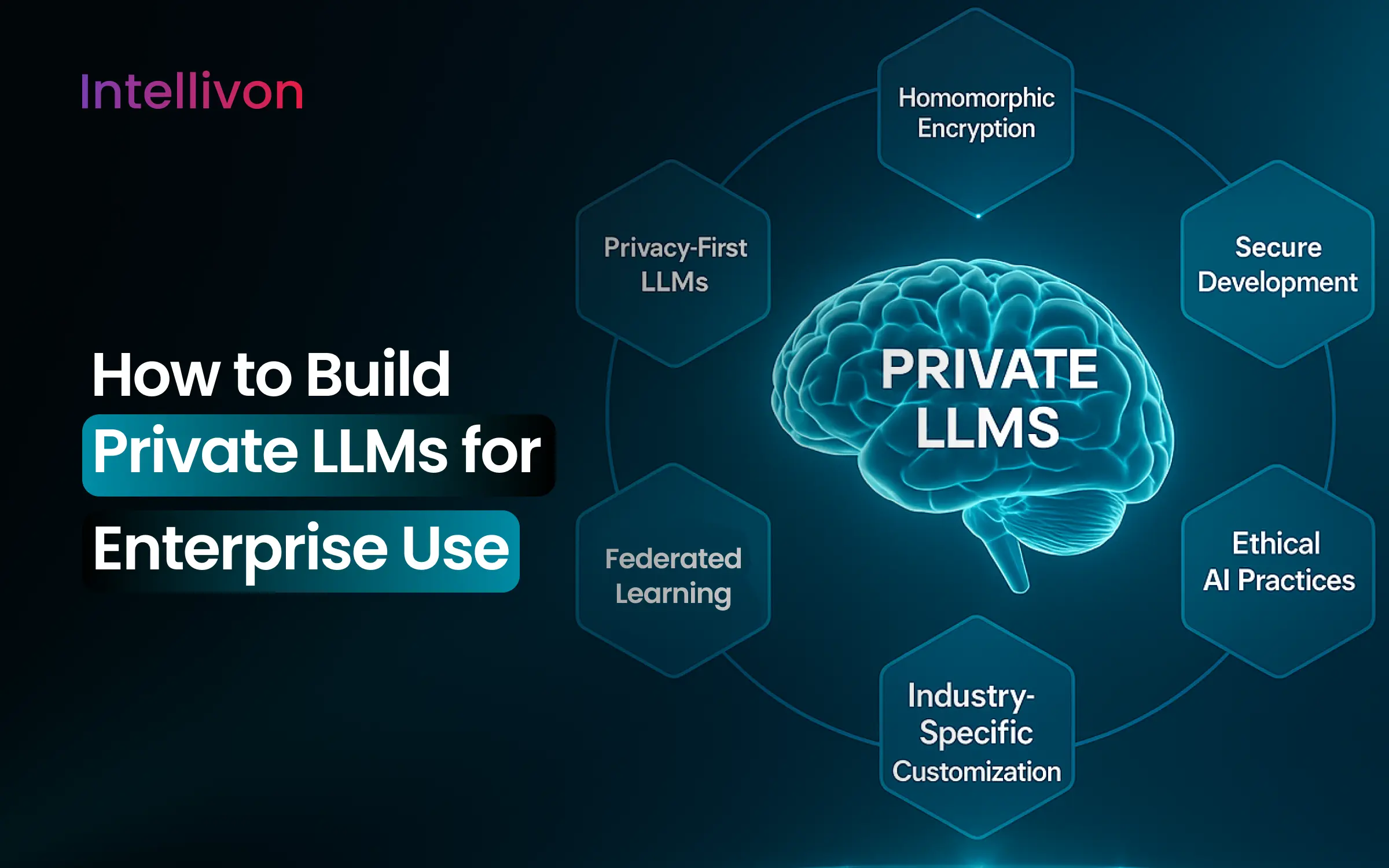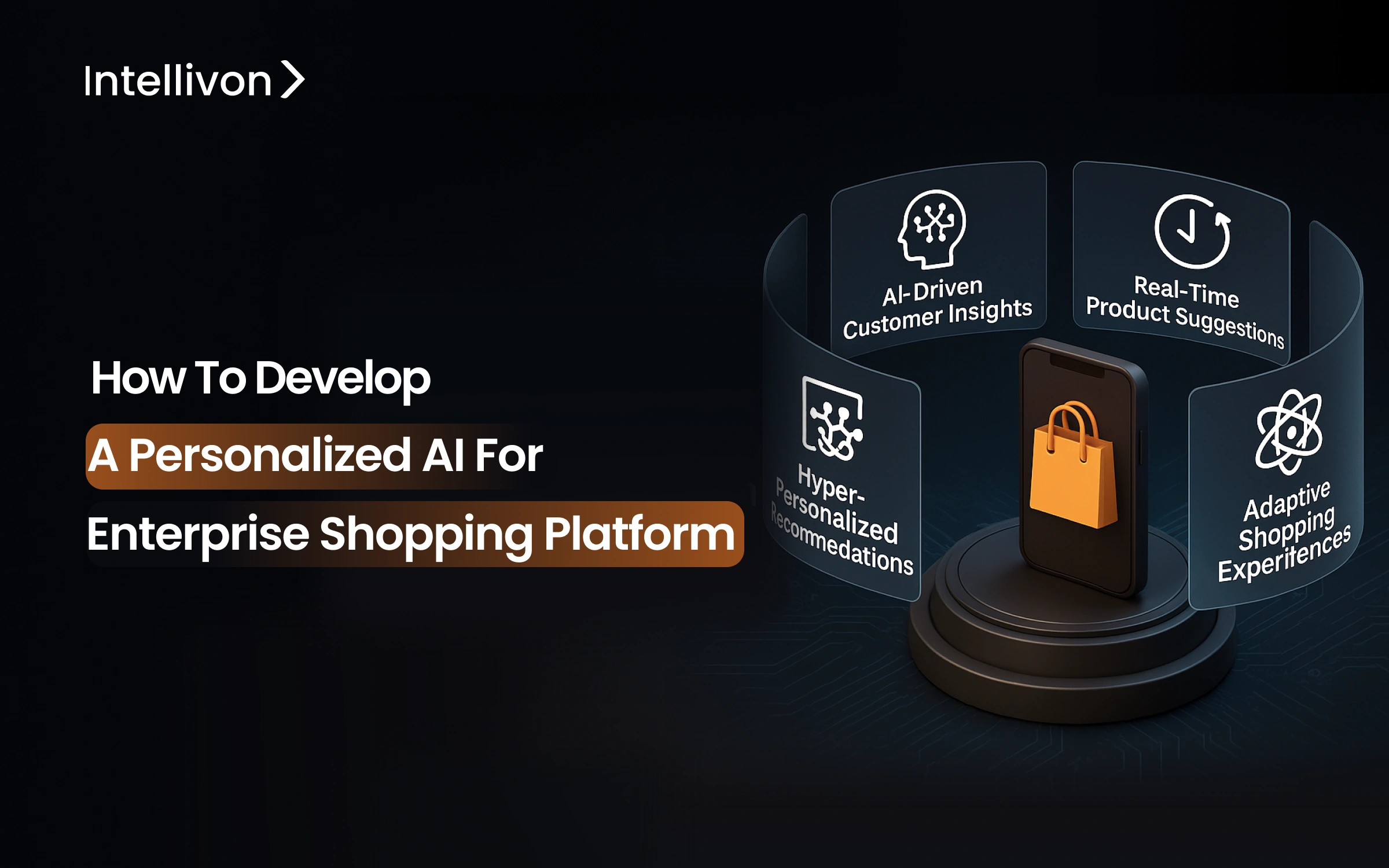The online shopping experience has moved way past the ‘one size fits all’ circus. Consumers want online shopping to feel like an elevated experience and to be treated like VIP’s by the brand. While enterprises have adopted AI solutions to elevate shopping experiences, the average cart abandonment rate is still at a staggering 70.2%. So what are they doing wrong?
The answer lies in hyper-personalized experiences customized to the T, and this can be achieved through AI-powered personalization. Take, for instance, Amazon’s AI shopping assistant Rufus. The AI assistant is projected to turn a $285 million loss in 2024 into a $1.2 billion profit by 2027, as it expands globally and becomes deeply integrated into the shopping experience. Consequently, an Accenture report shows that 91% of consumers are more likely to shop with brands that recognize them, remember their preferences, and offer relevant recommendations. All these statistics point to the growing need for customized AI personalization in the e-commerce sphere.
With years of hands-on experience, Intellivon’s AI team has helped large retail enterprises build and scale personalized AI development solutions that drive real business results. By combining advanced technology with proven, science-backed methods, we create systems that deliver measurable returns. In this blog, we will walk you through how we approach enterprise-grade AI personalization from the ground up, tailored to the unique needs of retail businesses.
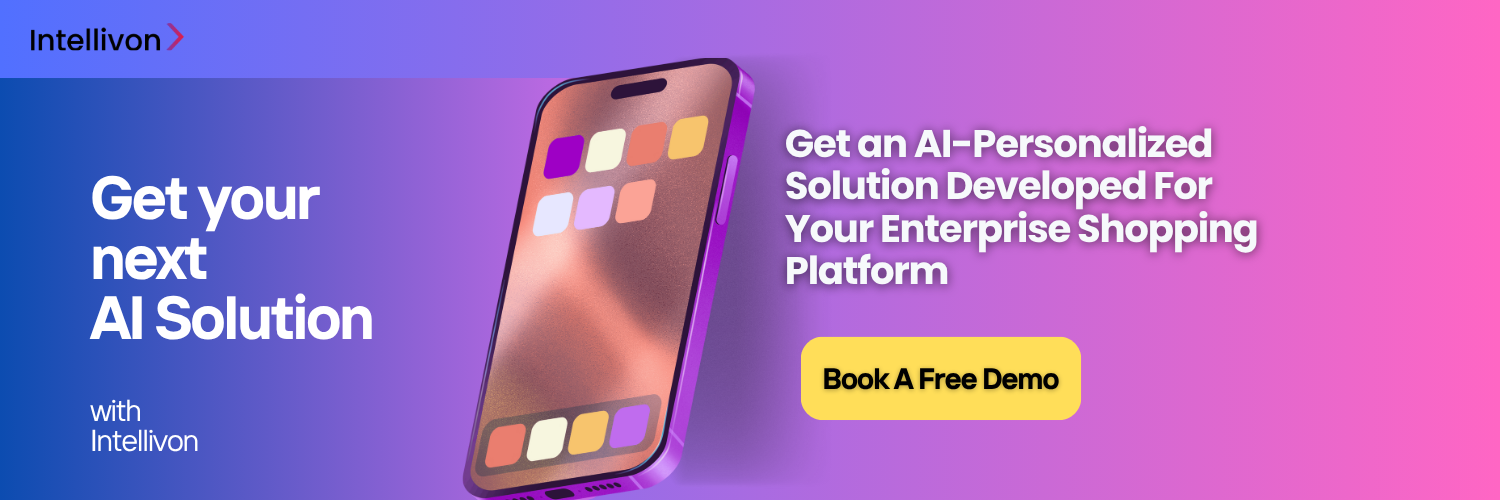
Why Enterprises Should Adopt AI-Personalized Shopping Experiences
The retail industry is witnessing rapid adoption of AI, with the market expected to reach nearly $9.65 billion in 2024 and projected to grow to $38.92 billion by 2029. This growth is fueled by the widespread use of smart devices, a growing base of internet users, increasing awareness of AI and big data, and strong support from government-led digital transformation initiatives.
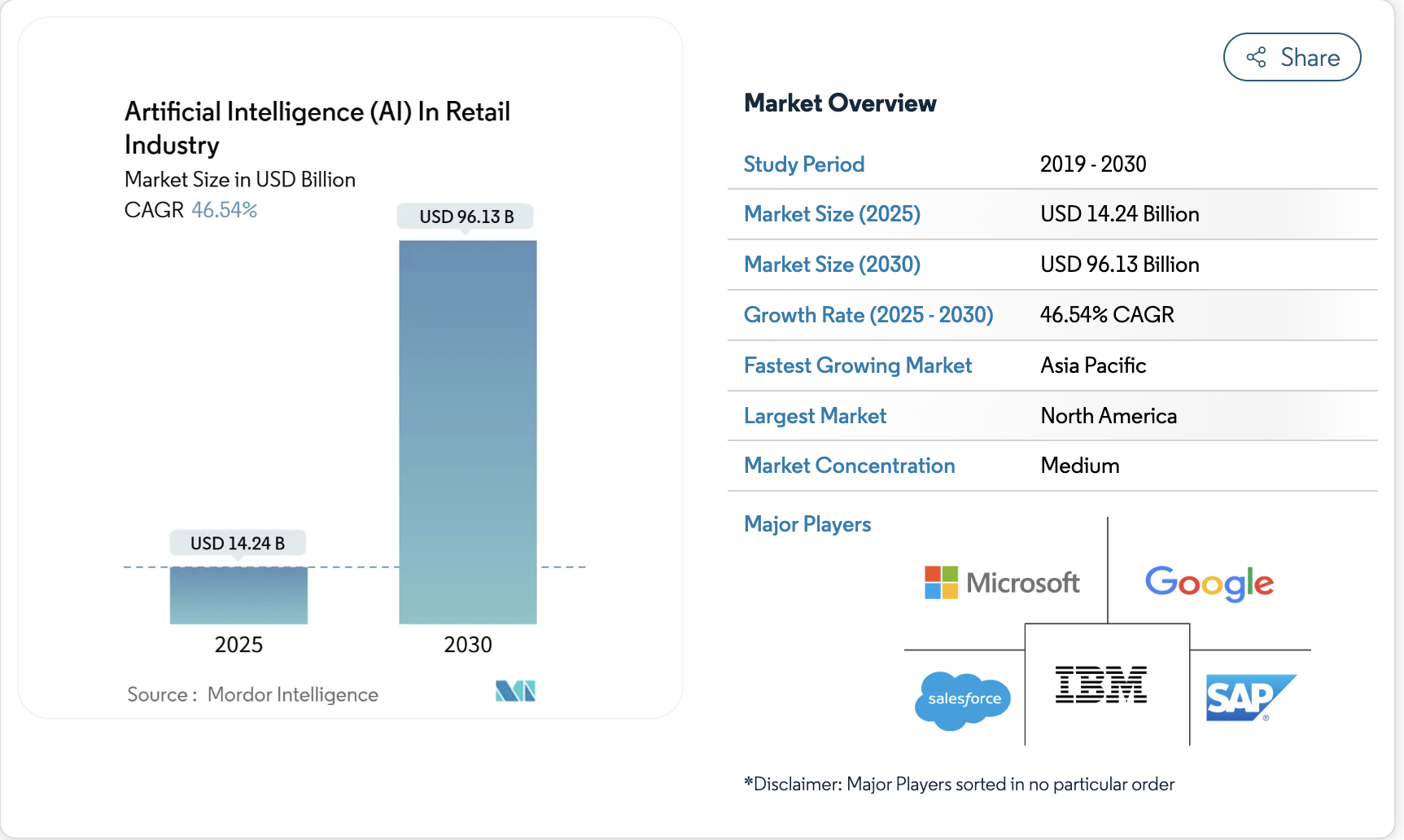
Key Market Insights:
- The global AI-based personalization market is valued at $525.2 billion in 2025 and is expected to reach $639.7 billion by 2029, growing at a rate of 5.1% annually.
- AI personalization engines used by retailers are forecasted to grow to $717.8 billion by 2033.
- Specialized sectors, like AI-powered personalization engines, are valued at $455.4 billion in 2024 and expected to reach $717.8 billion by 2033.
- Companies using AI for dynamic pricing have seen up to a 15% increase in revenue, while AI-driven segmentation has boosted loyalty program engagement by 11% annually.
- Brands like Nike, H&M, and Zara use AI chatbots and recommendation engines to offer personalized advice, increase engagement, and reduce cart abandonment by up to 30%.
- Over 70% of retail shopping experiences still lack AI-driven hyper-personalization, representing a major opportunity for companies to invest in AI now.
A gap is still lagging in the market when it comes to AI-personalization, but enterprises are rushing to it. This is the right time for you to invest in building an AI-personalized shopping engine.
Why Off-the-Shelf AI Personalization Solutions Are Failing
AI-driven personalization has become essential in retail, but many solutions fall short when applied at an enterprise scale. Tools built for D2C brands often collapse under the weight of complex retail operations.
Below, we explore the key reasons these generic platforms fail, and how a tailored enterprise approach makes all the difference.
1. Consumer AI Falls Apart in Enterprise Retail
Most off-the-shelf AI personalization tools are designed for small to mid-sized retailers managing a few thousand SKUs and relatively simple customer journeys. These systems struggle when applied to enterprise retail, where a single platform may support over half a million products, multi-brand portfolios, and layered buyer roles.
Instead of generating useful recommendations, generic AI solutions frequently produce mismatched or irrelevant suggestions. This not only disrupts the user experience but also causes friction across the purchasing process, ultimately lowering conversion rates and weakening customer trust.
2. Data Privacy and Compliance Factor
Enterprise retailers must operate in full compliance with stringent data regulations. From GDPR in Europe to CCPA in California, legal requirements vary widely by geography and industry. Healthcare, financial services, and public sector clients each bring an added layer of complexity.
Most consumer-grade AI systems are not built to manage these diverse regulatory demands. They lack granular access controls, proper audit trails, and flexible consent management. The result is a high risk of non-compliance that can expose businesses to severe penalties and reputational damage.
3. Legacy System Integration Challenge
Retail enterprises rarely start from scratch. Most operate with deeply embedded systemsm aging ERPs, custom databases, and proprietary software that support critical day-to-day operations.
Off-the-shelf AI solutions often require a full-scale overhaul to work, which introduces serious risks. Implementation may take months, create operational downtime, and rack up high costs with limited short-term value.
How Intellivon Bridges the Enterprise AI Gap
At Intellivon, we approach these challenges with purpose-built, modular AI architectures. Instead of forcing enterprises to reshape their systems, we design solutions that work with what already exists. Our personalization tools are built with secure, compliance-first frameworks that meet the demands of enterprise security and regulatory standards.
We enable seamless integration through APIs that connect directly with platforms like SAP, Oracle, and other legacy systems. This ensures low-disruption deployment while delivering personalization that reflects the scale, complexity, and depth of enterprise retail environments.
The Power of AI in Personalization for Enterprise Shopping Platforms
In enterprise retail, delivering a truly personalized shopping experience requires more than simple recommendation engines. AI enables retailers to understand each customer’s intent, preferences, and context at scale, driving meaningful engagement across every touchpoint.
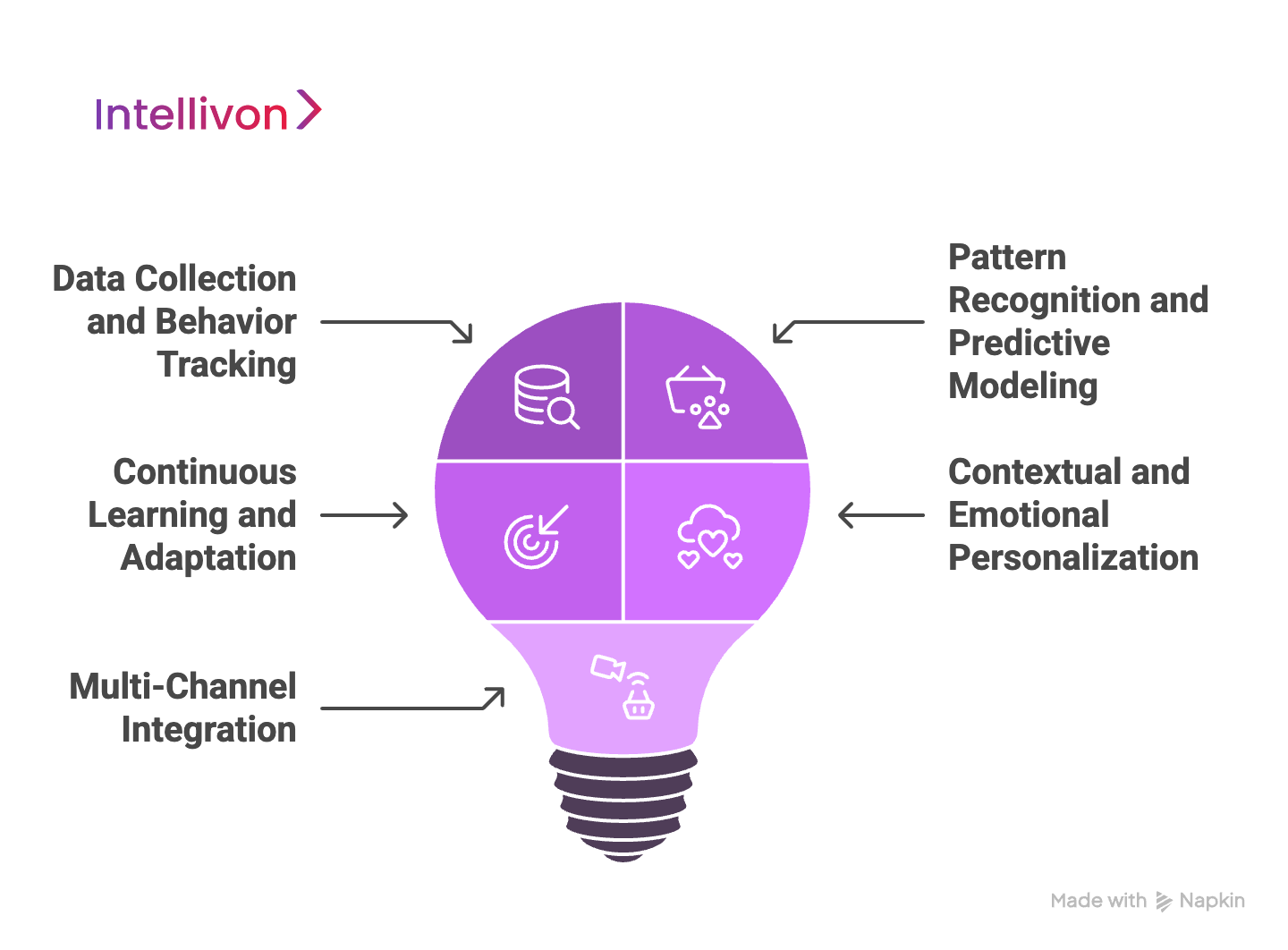
1. Data Collection and Behavior Tracking
Enterprise AI begins with collecting data from browsing history, search queries, click patterns, purchase records, and more. This creates a real-time behavioral profile of each shopper.
Lowe’s uses AI to track customer interactions across its platforms, tailoring suggestions based on DIY interests and seasonal behavior.
2. Pattern Recognition and Predictive Modeling
AI systems analyze customer data to uncover patterns such as product preferences or shopping frequency. Predictive models then forecast what customers are likely to buy next.
Amazon’s Rufus applies these models to suggest relevant products based on past behavior and current search intent, streamlining the discovery process.
3. Continuous Learning and Adaptation
Unlike static systems, AI personalization adapts continuously. As customers interact with the platform, the system refines its understanding and adjusts recommendations in real time.
Klarna updates product recommendations mid-session based on user clicks and scrolling behavior, increasing relevance and conversion potential.
4. Contextual and Emotional Personalization
AI also accounts for context such as weather, time of day, and user sentiment. Some systems integrate computer vision and NLP to interpret emotional signals.
Sephora uses facial recognition and chatbot sentiment analysis to recommend beauty products aligned with a customer’s tone, preferences, and style.
5. Multi-Channel Integration
True enterprise personalization spans all digital and physical channels. AI ensures that a shopper’s experience remains consistent whether online, in-store, or in-app.
Nordstrom unifies its online and offline data, allowing in-store associates to offer suggestions based on the customer’s digital behavior.
Together, these AI capabilities create personalized journeys that adapt in real time, increase engagement, and deliver measurable business value. For enterprise retailers, this means not only meeting customer expectations but exceeding them, at scale.
Benefits of Implementing Personalized AI for Enterprise Shopping Platforms
For enterprise retailers, personalized AI is a strategic capability. When designed and deployed thoughtfully, it delivers stronger customer connections, smarter operations, and measurable business growth. Below is a closer look at the tangible benefits, supported by real-world use cases.
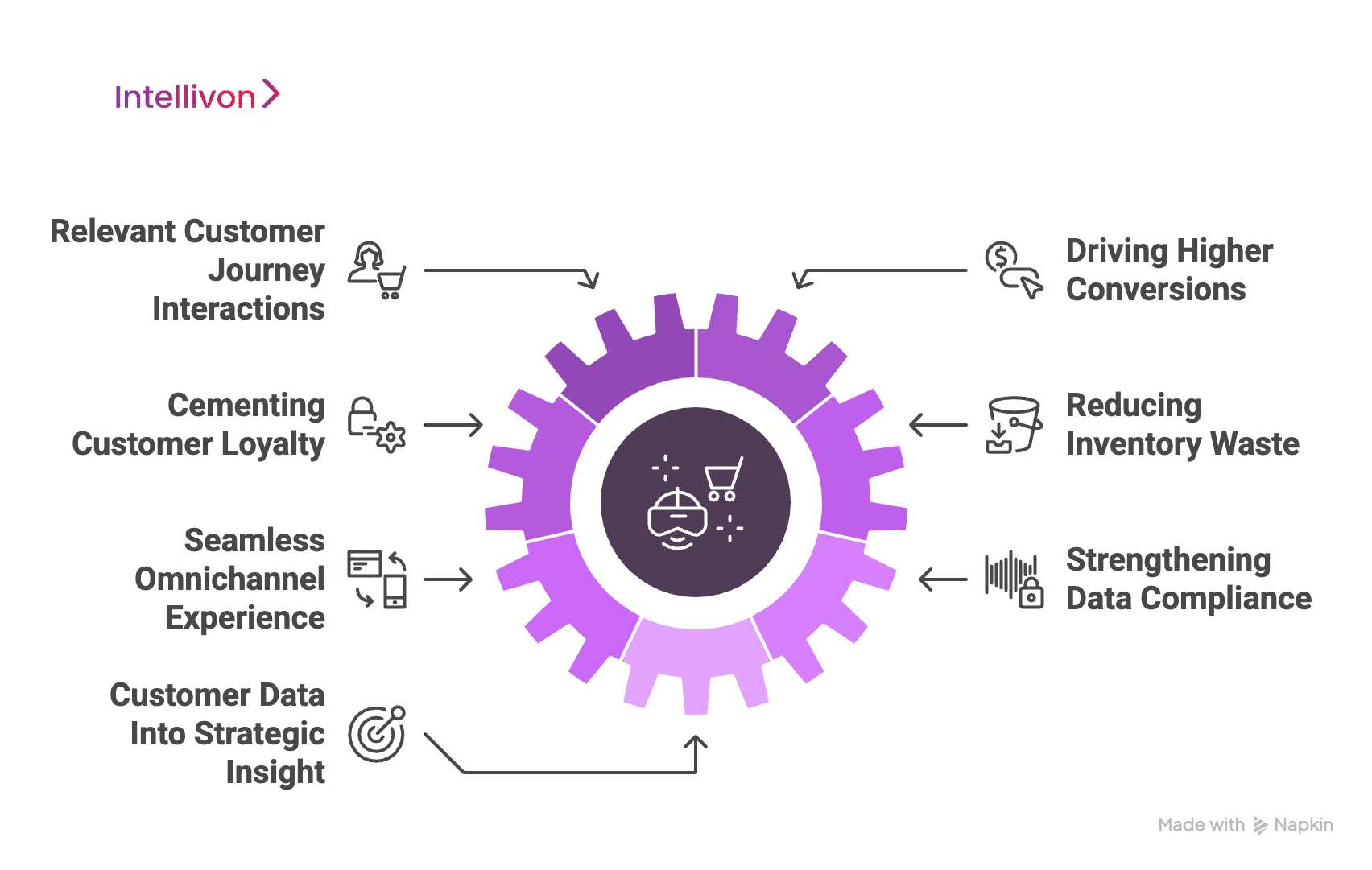
1. Relevant Customer Journey Interactions
Personalized AI simplifies the customer journey by making every interaction relevant. From product discovery to live chat, the experience feels less like browsing and more like being guided. The result is less frustration and more confidence in purchase decisions, which invariably leads to a reduction in cart abandonment rates.
A global beauty brand integrates an AI-powered virtual assistant across its app and website. Shoppers receive skincare suggestions based on their skin type, past purchases, and even local weather. This will boost rates and help customers find what they need faster.
2. Driving Higher Conversions
When shoppers are shown what they are actually looking for, sometimes before they realize it themselves, they are more likely to buy. AI enables this by understanding what matters most to each customer at that moment, then serving up the right product, price, or offer.
An electronics retailer uses machine learning to recognize when customers browse phones but skip accessories. By introducing subtle, well-timed suggestions for cases and chargers, they will increase the average order value by over 20% in one quarter.
3. Cementing Customer Loyalty
People remember when a brand understands them. AI helps businesses earn that loyalty by personalizing rewards, timing outreach when it matters, and showing consistency across every channel. Over time, this builds trust, and trust leads to return visits.
A fashion platform tracks individual customer preferences and sends curated style edits before seasonal drops. Engagement rates will improve significantly, and their loyalty program will see a higher year-over-year growth in active members.
4. Reducing Inventory Waste
AI helps retailers anticipate demand more accurately, which reduces unsold inventory and stockouts. It also streamlines internal tasks, from automated price updates to faster customer service resolutions.
A large home décor chain uses AI to forecast demand for regional product preferences. They cut back on overstock and redirected resources to fast-moving lines, improving cash flow without sacrificing availability.
5. Seamless Omnichannel Experience
Modern shoppers move between devices and touchpoints. AI ensures that their experience stays consistent, whether they are scrolling on mobile, speaking to a chatbot, or walking into a store.
A global sportswear brand syncs its customer data across online platforms and in-store systems through an omnichannel retail support system. When a shopper who browsed winter jackets online visits a retail location, the store associate will already know their size, style, and preferred colors.
6. Strengthening Data Compliance
With stricter privacy regulations in place, AI systems must do more than personalize; they must also protect. A privacy-first approach ensures customers can trust that their data is secure and used responsibly.
A European retailer embeds real-time consent controls into its personalization engine. Customers could review and adjust what data was used at any point, which increases transparency and improves opt-in rates across the board.
7. Customer Data Into Strategic Insight
AI doesn’t just help retailers react, but it also helps them plan. By analyzing trends, behavior, and gaps in real time, teams can make better decisions across marketing, product, and logistics.
An electronics company spots growing interest in eco-friendly accessories through behavioral trend analysis. This insight will lead to a product pivot that resonates with its audience and captures a new market segment within weeks of launch.
Real World Use Cases of Personalized AI in Enterprise Shopping Platforms
Some of the world’s largest enterprise retailers are deploying it across their platforms to solve real business problems, improve customer satisfaction, and unlock new revenue streams. These use cases show how AI personalization drives tangible results when applied at scale.
1. Real-Time Personalization
Real-time personalization uses AI to instantly adapt product recommendations, content, and offers based on customer behavior as it happens. These systems rely on continuous data streams, including clicks, scrolls, page time, and cart activity, allowing enterprises to deliver context-aware responses during the shopping journey. The goal is to reduce friction, surface the most relevant options, and influence decisions before the customer leaves the platform.
Example: Everlane
Everlane, a modern essentials fashion brand, uses real-time personalization to adjust product suggestions based on in-session browsing behavior. If a shopper shows interest in linen fabrics or neutral color palettes, the AI engine immediately reshapes the homepage and product grid to reflect those preferences.
2. Predictive Personalization for Complex Purchases
Predictive personalization anticipates customer needs before they are expressed. AI models analyze historical purchase data, cart activity, and user intent signals to suggest items that complete a purchase or support a larger goal. This is especially effective for enterprise platforms dealing in high-ticket or multi-item purchases like home improvement, fitness, or tech equipment.
Example: Build.com
Build.com specializes in home renovation and supplies. Their predictive AI system helps customers complete large-scale projects by recommending relevant tools, accessories, and add-ons based on browsing patterns and room-specific filters. For example, if a shopper adds a bathroom sink to their cart, the system suggests compatible faucets, plumbing kits, and even cleaning products, pre-empting future searches and reducing cart abandonment.
3. Visual and Contextual Personalization
This form of personalization uses AI models trained on computer vision and contextual signals to recommend products based on appearance, tone, mood, and external variables like location or weather. It is especially impactful in categories where visual fit and aesthetic matter deeply, such as fashion, beauty, and furniture.
Example: Feelunique
Feelunique, a UK-based beauty retailer, integrates AI-driven visual recognition into its product recommendation engine. Customers can upload selfies, and the system analyzes skin tone, texture, and even lighting to suggest matching foundations and skincare products. Combined with contextual cues like location-based humidity or seasonal trends, Feelunique has improved conversion rates in product categories that often require human consultation.
4. Loyalty-Based Personalization
Loyalty personalization tailors shopping experiences and marketing campaigns based on user engagement history, rewards program behavior, and lifetime value. These AI systems help enterprises re-engage dormant users, reward frequent shoppers intelligently, and craft offers that deepen brand relationships.
Example: Plow & Hearth
Plow & Hearth, a home and garden retailer, revamped its loyalty strategy using AI to personalize incentives. By analyzing user frequency, cart value, and seasonal shopping habits, they built tailored reward flows that offered birthday gifts, early sale access, or bundle discounts at optimal touchpoints. As a result, reactivation emails performed significantly better, and loyalty program participation increased over two quarters.
5. Personalized Product Discovery
AI enhances product discovery by improving search relevance, refining category filters, and surfacing results that align with individual preferences. Rather than relying on static tags or keyword matching, AI systems use behavioral data to understand user intent and adjust discovery paths in real time.
Example: Modanisa
Modanisa, a global modest fashion e-commerce platform, implemented AI-powered discovery tools to tailor search results based on browsing history, style preferences, and regional popularity. A user searching for “summer dresses” in Turkey might see different results than someone in the UK, not just due to stock differences, but because the AI system recognizes regional style trends and adjusts rankings accordingly.
Key Strategies for Implementing AI for Enterprise Personalized Shopping Experiences
Key Strategies for Implementing AI for Enterprise Personalized Shopping Experiences
For enterprise retailers, effective AI personalization is about reshaping the entire shopping journey with intelligence and intent. At Intellivon, we follow these strategies to help enterprises integrate AI in ways that are scalable, adaptive, and aligned with measurable outcomes.
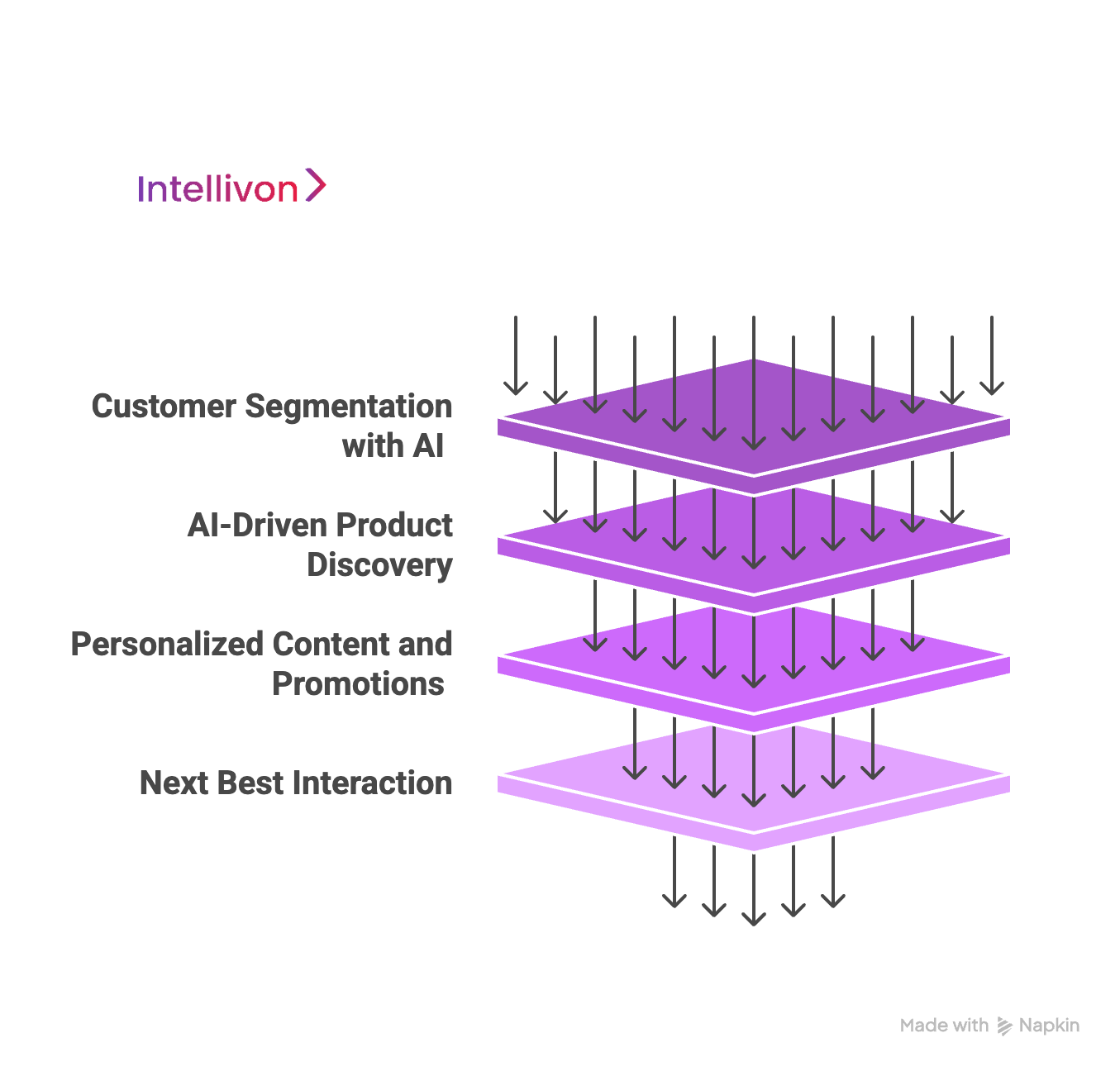
1. Customer Segmentation with AI
To personalize effectively, retailers first need to know who they are personalizing for. AI-driven segmentation goes far beyond traditional categories like age or gender. It builds living, behavior-based groups that evolve with every interaction.
1. Moving Beyond Static Segments
Rather than relying on broad assumptions, intelligent systems observe how each customer navigates, clicks, compares, and returns. These patterns create micro-segments, like “bargain-focused buyers with weekend activity spikes”, which are far more actionable than fixed demographics.
2. Real-Time Segment Qualification
Unlike manual segmentation, which may be updated quarterly, AI updates segment membership automatically. If a customer’s behavior shifts, say, they go from browsing gifts to comparing high-end kitchen appliances, the system adapts in real time, updating the experience without delay.
3. Measurable Impact
Enterprises using this approach have seen email campaign engagement double and paid ad targeting become far more efficient. When every segment reflects real behavior, messaging stops feeling generic and starts driving action.
2. AI-Driven Product Discovery
Helping shoppers find the right product quickly is central to a frictionless experience. AI enhances discovery by making search and navigation systems feel intuitive, responsive, and increasingly aligned with intent.
1. Intelligent Search Personalization
Search no longer needs to rely on perfect phrasing. AI adjusts results based on user behavior and inferred intent. A customer searching for “office chair” may be shown ergonomic designs based on prior clicks, while another might see compact models if they’ve browsed small spaces.
2. Context-Aware Recommendations
Modern recommendation engines can distinguish between trend-driven browsing and goal-oriented shopping. For example, a customer exploring winter wear during a travel spike may be shown ski gear, while another in a warmer climate sees layering pieces for the season.
3. Scalable Tools
Retailers can build systems that scale with real-time demand. These pipelines deliver fast, personalized product suggestions without slowing down under peak traffic.
3. Personalized Content and Promotions
Personalization does not stop at product recommendations. AI can also shape what a customer sees, reads, and clicks, based on where they are in their journey and what is most likely to engage them.
1. Tailored Omnichannel Experience
Instead of showing every customer the same homepage banner or email, the system serves content based on previous behavior, time since last visit, or even weather conditions. A shopper browsing activewear on a rainy day might receive a promotion for waterproof outerwear.
2. Continuous Optimization
AI helps test and improve content in the background. By analyzing which images or messages prompt clicks, or which offers lead to cart completions, retailers can continuously refine their content, often without needing a full redesign.
4. Next Best Interaction
Every touchpoint with a customer is an opportunity, but only if it’s well-timed and relevant. AI helps enterprises know not just what to say, but when to say it, and how.
1. Predictive Channel Selection
Some customers open emails at 7 AM. Others respond better to app notifications in the evening. AI learns these rhythms and selects the best moment and medium for each message, whether it’s a special offer, back-in-stock alert, or product tip.
2. Prioritized Relevance
Rather than overloading shoppers with daily promotions, the system selects the one most likely to matter now. A returning shopper might receive a cart reminder, while a new user could be nudged with a limited-time welcome discount.
3. Smarter Marketing Spend
By reducing irrelevant outreach, marketing teams spend less while achieving more. Resources can be focused on messages that convert, and customer trust grows when every message adds value.
This implementation approach leads to smarter engagement, leaner operations, and customers who feel seen every step of the way.
How We Develop a Personalized AI System for Enterprise Shopping
At Intellivon, building an enterprise-grade personalized AI system is a carefully planned transformation that integrates deep technical engineering with real-world business alignment. Our phased roadmap is designed to help large-scale retailers move confidently from legacy complexity to future-ready personalization.
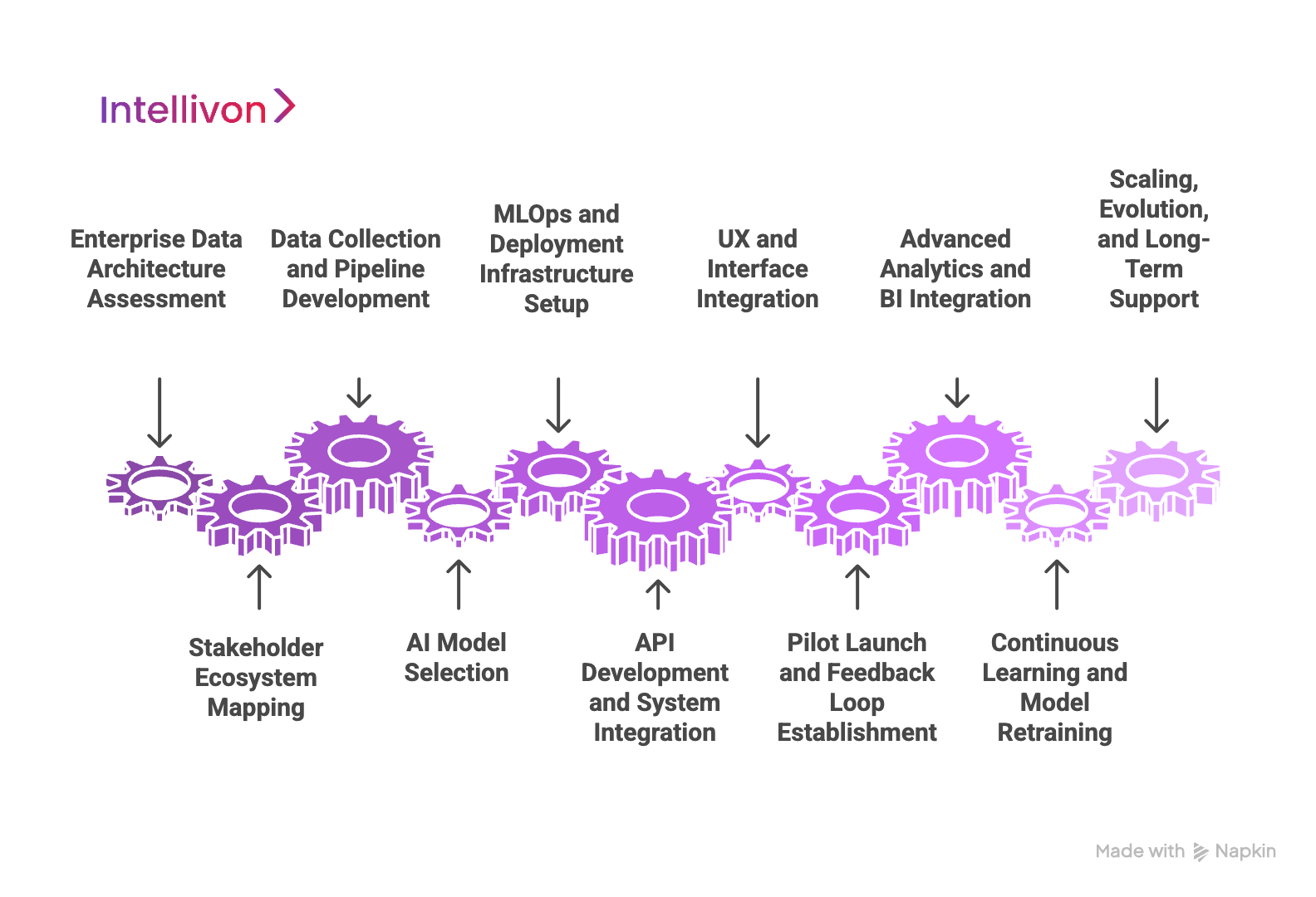
Phase 1: Enterprise Data Architecture Assessment
Every project begins with understanding the existing landscape. Intellivon conducts a detailed audit of all legacy systems, data silos, and integration points to identify bottlenecks that might hinder AI performance.
We assess data quality and completeness, pinpoint enrichment opportunities, and ensure compliance with GDPR, CCPA, and internal governance frameworks. The goal is simple: create a solid data foundation without disrupting business continuity.
Phase 2: Stakeholder Ecosystem Mapping
Successful personalization doesn’t live in a vacuum. We work closely with leadership across IT, marketing, compliance, merchandising, and CX to map decision-makers, define role-based needs, and align AI outcomes with department-specific KPIs.
This phase ensures that AI supports broader enterprise objectives and does not become siloed as a tech-only initiative.
Phase 3: Data Collection and Pipeline Development
Using our modular architecture approach, we consolidate behavioral, transactional, inventory, and external data sources into centralized data lakes.
From there, we design secure, real-time ingestion pipelines that support continuous model training. Governance and monitoring layers are embedded from day one to maintain accuracy, reliability, and privacy at scale.
Phase 4: AI Model Selection
Intellivon does not deploy one-size-fits-all models. We evaluate the use case and select the most appropriate architecture, from collaborative and content-based filtering to transformer-based deep learning.
Each model is fine-tuned using enterprise-specific data features and layered with proprietary algorithms developed for scale and context-awareness.
Phase 5: MLOps and Deployment Infrastructure Setup
Our AI engineers build cloud-native or hybrid infrastructures based on your enterprise’s security posture and latency requirements.
We implement robust MLOps frameworks, like CI/CD, automated retraining pipelines, and version control, to streamline model deployment and reduce time-to-value. Low-latency inference is engineered to support millions of interactions without performance degradation.
Phase 6: API Development and System Integration
We design APIs that are secure, modular, and purpose-built to integrate seamlessly with existing platforms, whether it’s a headless CMS, custom ERP, or legacy e-commerce engine.
Change management strategies are implemented in parallel to support IT and business teams during rollout. Every API undergoes rigorous testing for performance, reliability, and compliance.
Phase 7: UX and Interface Integration
Personalization must feel intuitive, not intrusive. We identify high-impact touchpoints, like product pages, search results, promotions, and pricing,a nd embed personalized AI experiences directly into the UI.
A/B testing frameworks are deployed to optimize variations by segment, ensuring that design, performance, and user satisfaction remain balanced at every interaction.
Phase 8: Pilot Launch and Feedback Loop Establishment
Before scaling system-wide, Intellivon deploys a tightly controlled pilot with a select user segment. We track model performance against key benchmarks like conversion, CTR, bounce rate, and AOV.
Qualitative feedback is gathered from customers and internal teams to identify gaps. These insights are used to calibrate models and UX before broader deployment.
Phase 9: Advanced Analytics and BI Integration
We build customized dashboards that visualize customer journeys, AI model outputs, inventory impact, and ROI trends in real time.
Advanced analytics modules provide predictive insights, helping retailers forecast demand, fine-tune assortments, and optimize cross-channel strategies. These tools turn data into actionable strategy, not just reporting.
Phase 10: Continuous Learning and Model Retraining
Our AI systems are never static. Intellivon sets up automated retraining pipelines that ingest fresh data to adapt to shifting customer behaviors and market trends.
Bias detection, fairness checks, and performance audits are built into our lifecycle governance. This ensures personalization remains relevant, accurate, and ethically sound.
Phase 11: Scaling, Evolution, and Long-Term Support
Personalization doesn’t end at launch. We work with clients to expand into new touchpoints, from in-store kiosks to voice assistants to mobile apps.
Our modular system design allows easy adoption of new models, channels, and AI capabilities. With dedicated long-term support, we help clients future-proof their systems and maintain a competitive advantage through continuous innovation.
This phased approach reflects Intellivon’s belief that true enterprise AI personalization must be built deliberately, with technical depth, operational stability, and clear business intent. By combining custom algorithms, enterprise-grade engineering, and stakeholder-first planning, we ensure that each system is not only intelligent but impactful.
Challenges and Best Practices with AI Personalization for Enterprise Shopping Platforms
From compliance risks to system fragmentation, Intellivon helps large retailers overcome these barriers through tailored frameworks, best practices, and enterprise-ready technologies.
| Challenges | Intellivon’s Solution |
| Bias in AI Models | Train models using broad, representative datasets, conduct regular audits, and ensure explainable AI. |
| Cost and Complexity | Start with an MVP focusing on high-impact areas, use agile sprints, and provide continuous feedback loops. |
| Maintaining a Human Touch | Blend intelligent automation with human oversight; escalate complex cases to trained agents when needed. |
| Data Silos and Legacy Integration | Deploy harmonization layers to connect CRM, ERP, PIM, and eCommerce systems with secure APIs and middleware. |
| Regulatory Compliance and Security | Embed compliance through encryption, multi-factor access, audit trails, and regular penetration tests. |
| Change Management and User Adoption | Provide structured, role-specific training programs and gradual rollout with internal champions. |
| ROI Measurement and Justification | Define clear metrics at each stage, track success in real-time dashboards, and adjust investments. |
| Multi-Location Inventory Synchronization | Enable real-time inventory visibility across locations and adjust product visibility based on regional demand. |
| Customer Service Escalation | Use sentiment analysis and cart behavior to detect service issues early, route cases intelligently, and resolve common issues via automation. |
| Bulk Order Complexity | Build AI workflows that adapt pricing dynamically for bulk tiers, integrate with procurement approval systems, and auto-generate compliance documentation. |
1. Bias in AI Models
Personalization models built on skewed or incomplete data can unintentionally reinforce stereotypes or exclude certain customer groups. This undermines trust and results in poor user experiences.
Intellivon’s Solution
We train models using broad, representative datasets that reflect real-world diversity in customer behavior. Regular audits and fairness checks are integrated into the MLOps lifecycle, while explainable AI techniques ensure transparency behind every decision.
2. Cost and Complexity
Enterprises often hesitate due to the upfront costs, lengthy integrations, and the perception that AI takes too long to deliver value.
Intellivon’s Solution
We start small and smart. Our teams launch a Minimum Viable Product (MVP) focused on one or two high-impact personalization areas, such as dynamic product recommendations or behavioral segmentation. Agile sprints and continuous feedback loops allow us to deliver results early while building toward a broader rollout.
3. Maintaining a Human Touch
Automating too much of the customer experience can feel impersonal and robotic, damaging brand trust.
Intellivon’s Solution
Our approach blends intelligent automation with human oversight. For instance, AI-powered chatbots are designed to escalate complex cases to trained agents at the right moment. We also help train enterprise teams to interpret and enhance AI-driven insights with human judgment.
4. Data Silos and Legacy Integration
Disconnected systems across departments lead to fragmented customer profiles and inconsistent personalization.
Intellivon’s Solution
We deploy harmonization layers that connect CRM, ERP, PIM, and eCommerce systems using secure APIs and middleware, without forcing a full system overhaul. Real-time synchronization and enrichment tools ensure consistent, high-quality data flows across the enterprise.
5. Regulatory Compliance and Security
Operating across geographies and verticals exposes retailers to GDPR, CCPA, and sector-specific regulations, all while handling sensitive customer data.
Intellivon’s Solution
Compliance is embedded in every layer of our architecture. From data collection through model deployment, we enforce encryption, multi-factor access, audit trails, and region-specific compliance protocols. Regular penetration tests and internal reviews keep systems aligned with evolving regulations.
6. Change Management and User Adoption
Enterprise AI systems often face resistance from internal users due to unfamiliar workflows or perceived complexity.
Intellivon’s Solution
We support change with structured, role-specific training programs, from marketing analysts to operations teams. A gradual rollout, backed by internal champions and feedback channels, helps build trust and drive sustained adoption.
7. ROI Measurement and Justification
Stakeholders demand clarity on how AI translates into business outcomes before committing long-term investments.
Intellivon’s Solution
Our frameworks define clear metrics at each stage of implementation, like a conversion lift, AOV increase, reduced churn, and operational cost savings. Dashboards track these metrics in real time, enabling leadership to evaluate success and adjust investments confidently.
8. Multi-Location Inventory Synchronization
Displaying out-of-stock products across a large network leads to poor customer experience and lost revenue. This issue alone contributes to over $2.3 billion in missed sales annually for large retailers.
Intellivon’s Solution
We enable real-time inventory visibility across hundreds of locations. AI dynamically adjusts product visibility and pricing based on regional demand. If an item is unavailable in one warehouse, the system can automatically suggest alternatives or initiate a transfer from a nearby location, without user friction.
9. Customer Service Escalation
Support teams are overwhelmed by repeat queries, slow escalations, and lack of contextual insight, especially in B2B retail.
Intellivon’s Solution
Our AI detects potential service issues before they’re raised, using sentiment analysis, cart behavior, and account-level signals. Intelligent routing directs cases to the right enterprise account manager, while common B2B issues (bulk order tracking, invoice retrieval) are resolved instantly through automated flows.
10. Bulk Order Complexity
Enterprise buyers deal with unique complexities, such as volume-based pricing, procurement approvals, and compliance documentation, that most B2C systems are not equipped to handle.
Intellivon’s Solution
We build AI workflows that adapt pricing dynamically for bulk tiers, integrate with procurement approval systems, and auto-generate compliance documentation. This streamlines ordering while ensuring accuracy and adherence to corporate protocols.
By addressing these core challenges, Intellivon transforms AI personalization from a risk-laden ambition into a measurable enterprise advantage. Our deep technical stack, combined with business strategy alignment, ensures every solution is not only compliant and scalable but also tailored to real-world retail complexity. Book a strategy call with us to get a personalized AI shopping system developed for your enterprise.
Top Enterprises Leveraging AI Personalization to Boost Retail Sales
The following enterprises have embraced scalable, intelligent systems tailored to their unique operational models, delivering improved engagement, higher conversions, and stronger customer loyalty.
1. Shoe Carnival
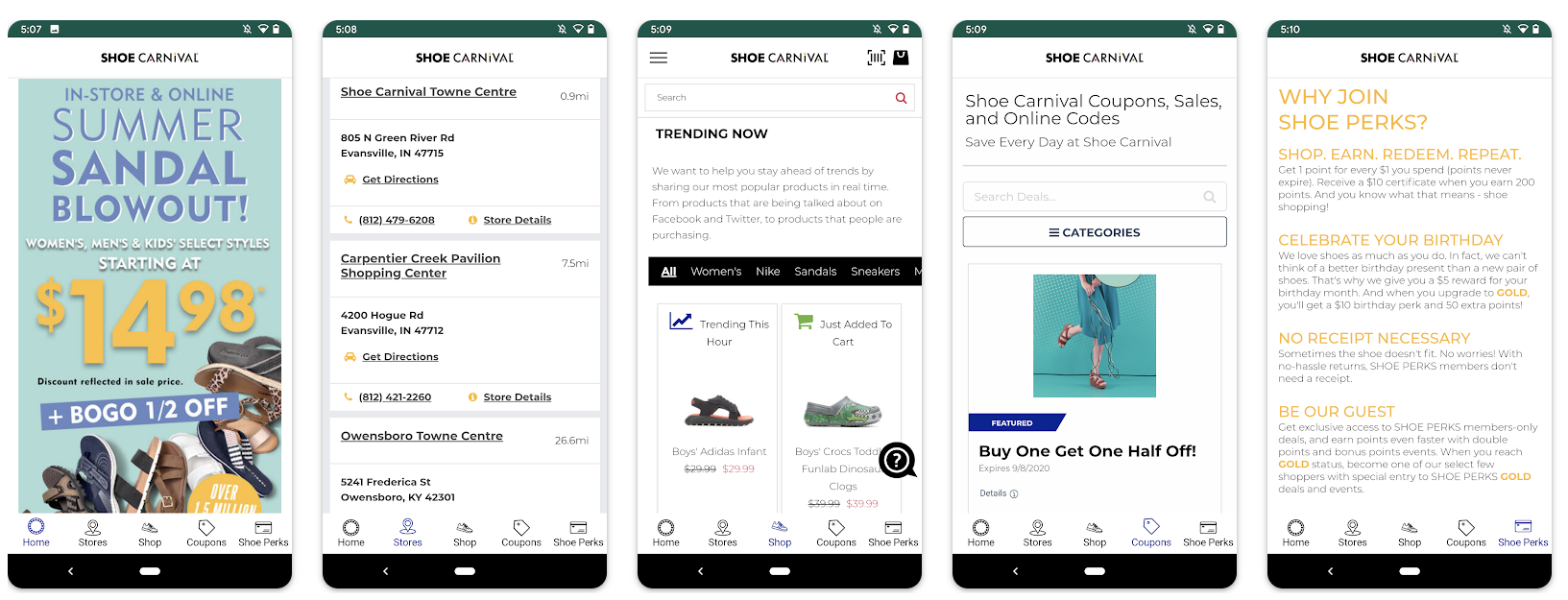
Shoe Carnival implemented AI-driven real-time personalization across its e-commerce platform to improve customer targeting. The brand leveraged a machine learning engine that adjusted product recommendations, promotions, and site content based on browsing behavior and customer segments.
2. Thrive Market

Thrive Market integrated a recommendation engine powered by collaborative filtering and natural language processing to personalize grocery product suggestions for each member based on past orders, dietary preferences, and even regional trends.
3. ASOS
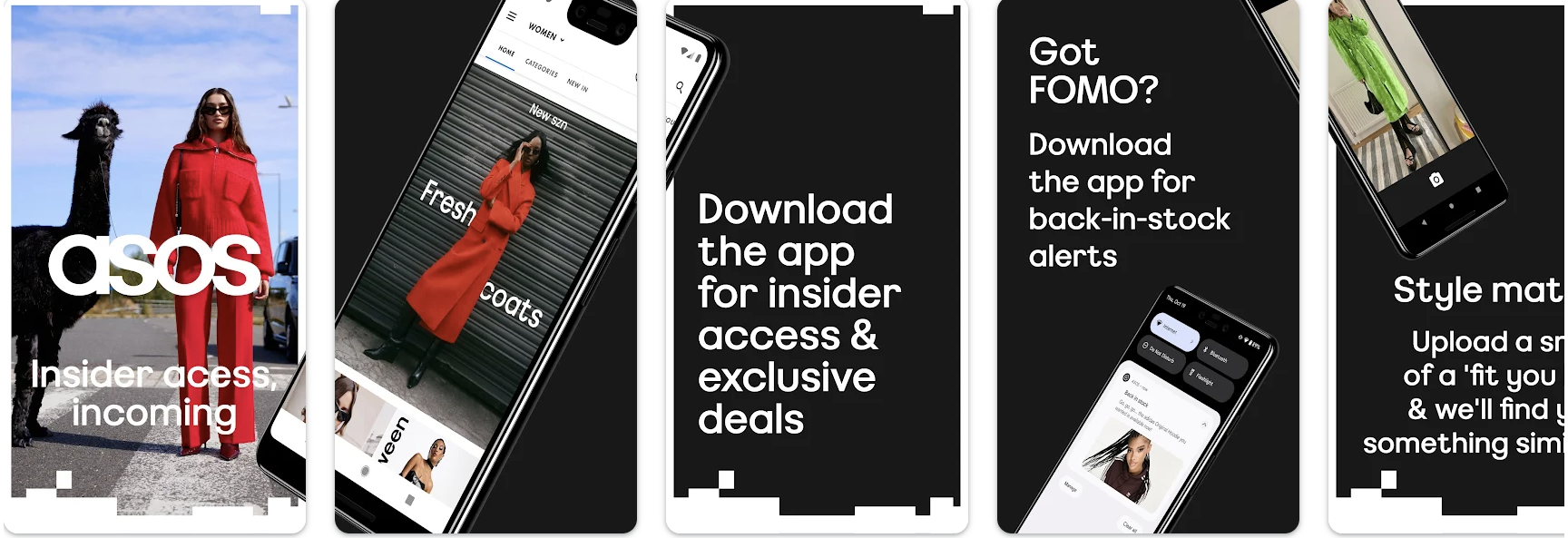
ASOS uses computer vision and AI to offer personalized size recommendations and style suggestions. Its “Fit Assistant” adapts based on customer purchase history, return behavior, and current fashion trends to minimize sizing issues and enhance satisfaction.
4. Petco
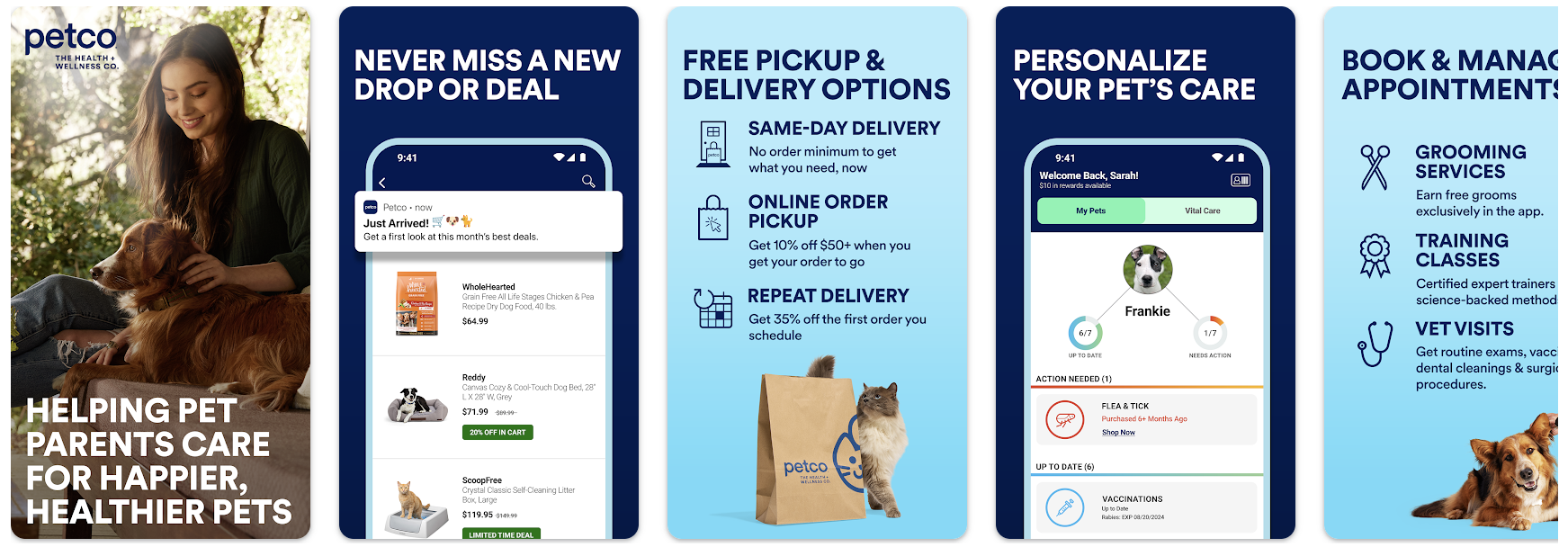
Petco adopted a multi-channel AI strategy that includes behavioral tracking and predictive analytics to offer personalized product bundles, auto-replenishment reminders, and tailored promotions based on pet type, age, and purchase history.
5. UNTUCKit
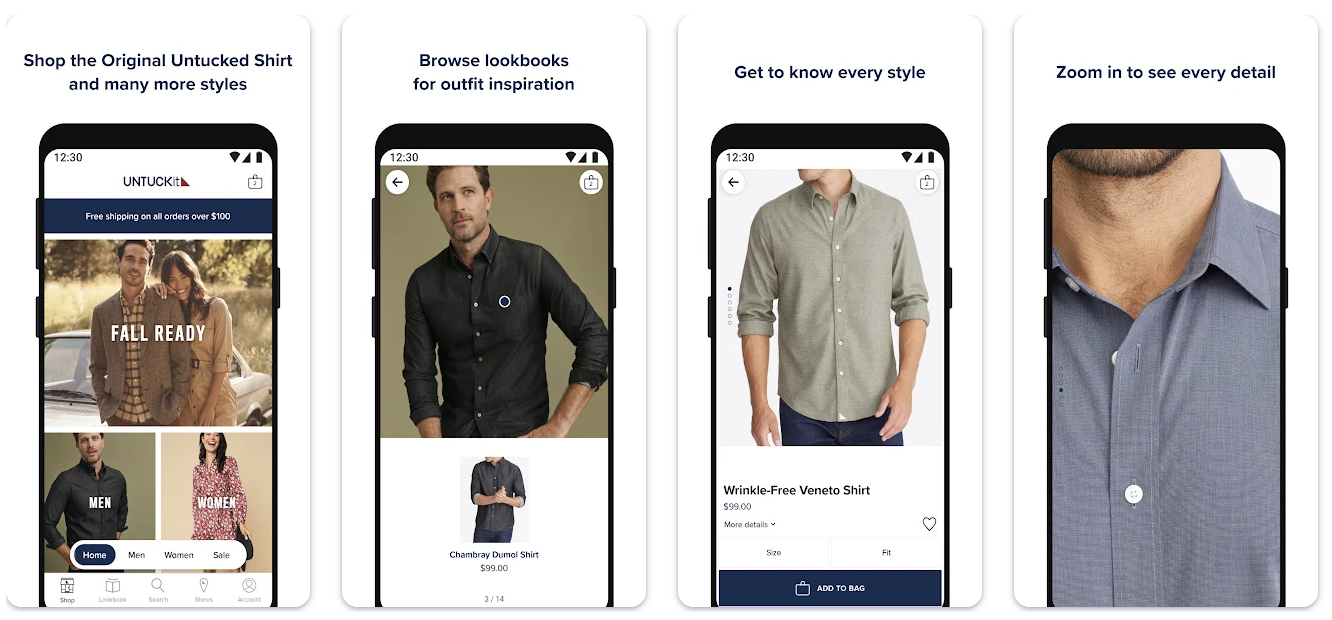
UNTUCKit deployed a personalization engine to deliver dynamic product recommendations based on real-time browsing activity, customer location, and inventory availability across physical stores and online.
This led to a 20% increase in mobile conversion rates and improved localized inventory sell-through.
Future of Personalized AI in Retail Enterprise Platforms
As AI capabilities grow more sophisticated, personalization in e-commerce is entering a new phase, one defined by real-time context, generative content, multimodal inputs, and privacy-first systems. Enterprises that plan for these shifts today will be better positioned to lead tomorrow.
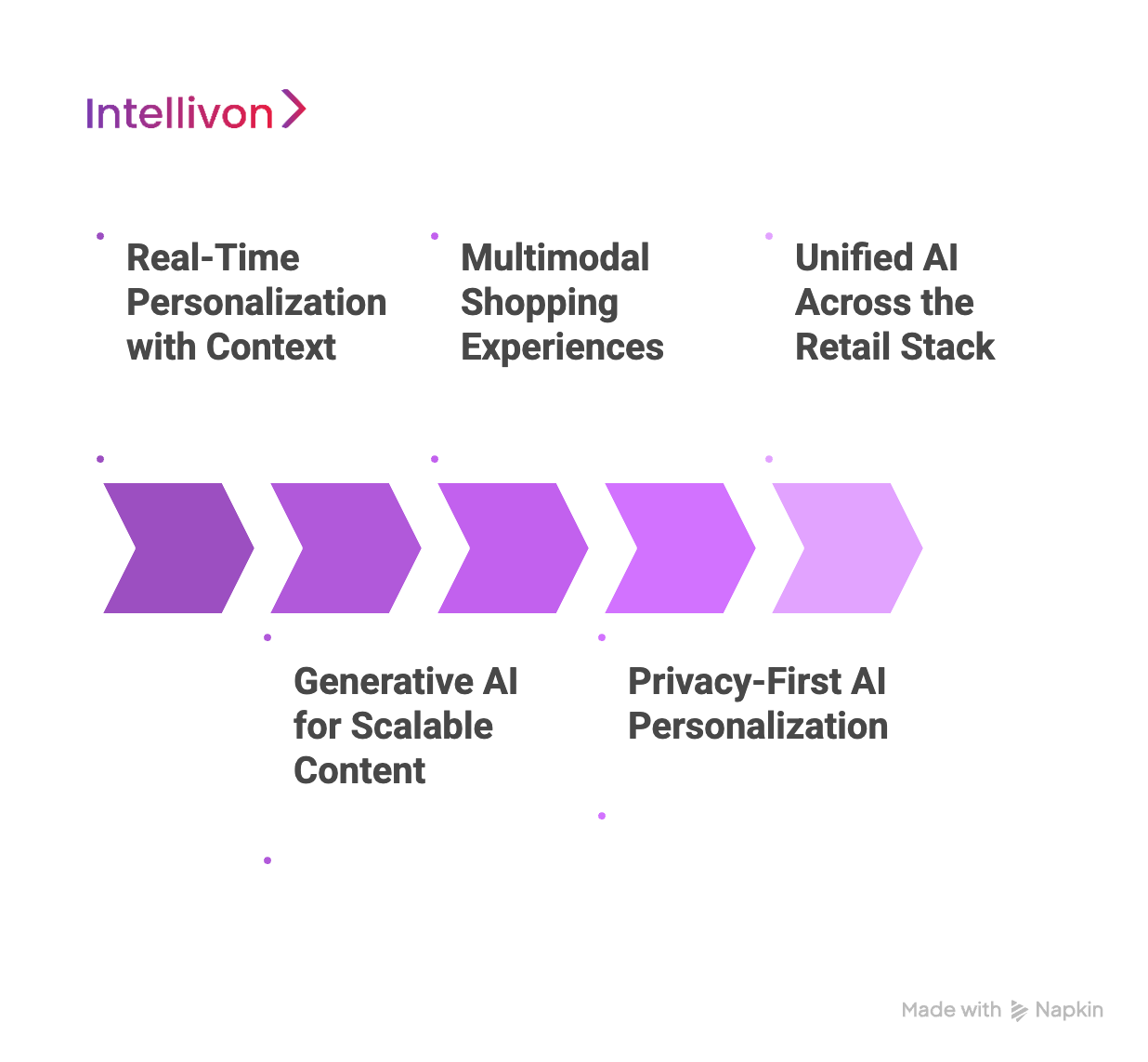
1. Real-Time Personalization with Context
AI is evolving to react instantly to user context, like time of day, location, device, or even current mood. This enables adaptive experiences that adjust in real time, creating more relevant and intuitive shopping journeys.
Soon, AI systems will dynamically change what customers see based on their immediate behavior, browsing intent, or session flow, improving conversion without overwhelming the user.
2. Generative AI for Scalable Content
LLMs are revolutionizing how content is created and personalized. Enterprises can now generate product descriptions, promo banners, and emails tailored to specific user segments at scale.
This shift reduces manual workload and ensures every customer receives messaging aligned with their preferences and tone, improving engagement across all digital touchpoints.
3. Multimodal Shopping Experiences
Next-gen personalization will leverage multimodal AI, like processing images, voice, video, and text together. Think visual search from a photo, voice-assisted checkout, or AI-generated videos of product demos based on customer behavior.
Retailers will use these technologies to create immersive, flexible shopping experiences across web, mobile, and in-store.
4. Privacy-First AI Personalization
With regulations like GDPR and CCPA expanding, enterprises must personalize responsibly. Federated learning enables model training without moving or exposing sensitive customer data.
This protects privacy while still delivering highly relevant shopping experiences, building trust, and ensuring global compliance.
5. Unified AI Across the Retail Stack
AI will soon act as a unified intelligence layer, not just for marketing, but for inventory, logistics, merchandising, and service. A connected view of each customer will power synchronized decisions across departments.
This coordination leads to consistent, efficient, and personalized experiences across every channel. At Intellivon, we lead the practical implementation for enterprise success. Our AI solutions are designed to evolve, incorporating context-aware personalization, generative content, and secure, scalable infrastructure that keeps pace with innovation.
Conclusion
As customer expectations rise, so does the need for intelligent systems that can deliver meaningful, individualized experiences at scale. From dynamic product discovery to context-aware promotions and predictive engagement, AI enables enterprises to move beyond generic interactions and build lasting relationships with their customers.
Yet the journey toward enterprise-grade personalization is not without its challenges. Success requires a thoughtful strategy, robust data infrastructure, secure integrations, and a commitment to continuous learning. Enterprises that adopt a phased, business-aligned approach can unlock measurable gains in customer satisfaction, operational efficiency, and long-term loyalty.
As AI continues to evolve, enterprises that embrace personalization with clarity and intent will shape the future of e-commerce itself.
Why Choose Intellivon for Your Enterprise AI Personalization Journey
With over 11 years of enterprise AI experience, Intellivon’s experts specialize in building deeply personalized, scalable AI systems tailored for complex retail environments. From dynamic product recommendations to real-time customer segmentation, our solutions integrate seamlessly into your existing tech stack. Here’s why leading enterprise retailers trust Intellivon to deliver intelligent shopping experiences that convert:
Proven Retail Expertise: With 500+ successful AI deployments, we understand the intricacies of multi-brand portfolios, high-SKU inventories, and complex B2B buying journeys.
Secure, Compliant Architectures: Our systems are built with privacy-by-design principles, ensuring GDPR, CCPA, and enterprise-grade data security from day one.
Tailored Change Management Support: We enable adoption through hands-on training, department-specific onboarding, and strategic communication support for all internal teams.
Ongoing Optimization for Business Growth: Our AI systems evolve with your business, supported by continuous feedback loops, retraining protocols, and performance refinement.
Ready to power your enterprise shopping platform with personalization that performs? Book a strategy call with us today to explore how our AI solutions can drive conversion, loyalty, and long-term impact for your retail business.
FAQ’s
Q1. What is personalized AI in enterprise e-commerce?
Personalized AI in enterprise e-commerce refers to the use of machine learning and real-time data analysis to tailor shopping experiences for each customer. This includes product recommendations, search results, pricing, and promotions that adapt based on user behavior, preferences, and context.
Q2. How does AI improve personalization in online shopping?
AI improves personalization by analyzing customer data such as browsing history, purchase behavior, and demographics. It then uses predictive models to deliver relevant products, offers, and content, creating a seamless and engaging shopping journey that increases conversions and loyalty.
Q3. Why do generic AI personalization tools fail in enterprise retail?
Off-the-shelf AI tools are built for simple, B2C use cases and cannot handle the complexity of enterprise retail, which involves vast product catalogs, multi-brand environments, legacy systems, and strict compliance requirements. These limitations often result in poor recommendations and low ROI.
Q4. What data is required to build a personalized AI system for retail?
A personalized AI system requires high-quality data such as customer purchase history, browsing behavior, search patterns, demographic information, inventory status, and real-time customer interactions across multiple channels like web, mobile, and in-store systems.
Q5. How can enterprises ensure compliance in AI-powered personalization?
Enterprises can ensure compliance by adopting privacy-first AI architectures, using secure data handling protocols, and embedding regulatory frameworks like GDPR and CCPA directly into the system design. Regular audits and transparent data governance are also essential.
Q5. What are the key benefits of personalized AI for large shopping platforms?
Key benefits include improved customer engagement, higher conversion rates, increased average order value, better inventory management, and stronger customer loyalty. AI personalization also enhances operational efficiency and helps unify omnichannel experiences across enterprise systems.

